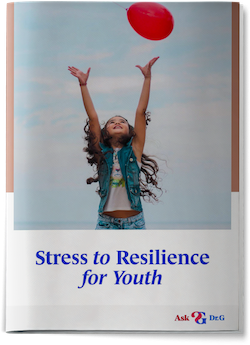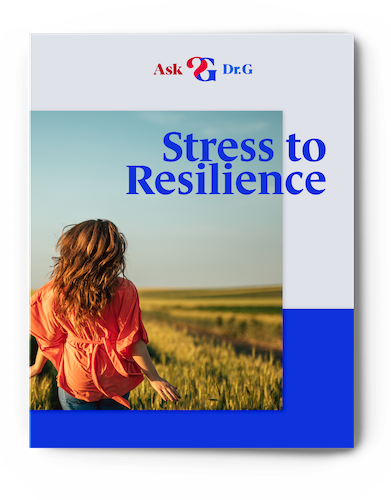Hi Dr. G. My daughter is going in to 1st grade, and one of her friend’s parents are getting divorced. I know she is going to hear about it soon. Even at this age all the girls seem to do is talk. This will be the first time she knows someone who is going through divorce in their family. Should I tell her first or wait for her to come to me? What should I say?
Jeannie, in Portland, OR
At 6 or 7 years old, she still thinks you know about everything she knows about. So if she hears about it from you she will just be better prepared to be a good friend when she hears, instead of saying something that may make this girl more sad, or angry. Go ahead and tell her, Jeannie, but think first about what you want to say.
The first thing your daughter will need from you about this topic is reassurance. Developmentally she’s learning that she isn’t the center of the universe (quite literally). However, when it comes to big, emotional topics she will think about what it means for HER first. We all do this to some extent, even as adults. It’s especially true for kids.
When kids hear something frightening, their first thought is “Could that happen to me?” When they bring a “I heard” problem to a parent, that is the first question to answer.
For a seven year old, make sure that your statements are clear and model what you want her to learn. “This is sad, and I’m glad our family won’t have to go through this.” Of course, if you are considering a divorce yourself, this needs to be worded differently.
Then ask questions and listen. Give your child a chance to express whatever she is wondering about. Personally, I’m especially bad at this. So when I ask one of my kids a feelings question I count in my head to 60 before I say anything else. Usually towards the end of that minute he will speak up with a thought or worry I didn’t know was in there.
The hardest thing for many of us as parents is to avoid telling our kids how to feel. We are so used to telling them what to do and what to say, that we end up also saying “Don’t feel scared” or “Don’t feel sad.” Instead of labeling their feelings as “wrong” in this way, we can teach a great lesson of empathy. As basic as it sounds, “reflecting” really makes a person feel better. Try, “I hear that you are scared. Would you like to know why I think it’s not as scary as it seems?”
Lastly, help your daughter practice what she wants to say to her friend when they talk about this. Again, your daughter will probably be thinking about how SHE will feel more than the friend. This is a good chance to teach her about friendship and support in a very straight-forward way. Ask her what feelings she would like her friend to have at the end of the conversation. After she thinks of one of two, help her figure out what she can say to give her friend the chance to feel that way. Remember, she is not responsible for how the friend feels, just for doing her part to give her the chance to feel good. Too often girls feel personally responsible for others’ feelings.
This is a big topic, and I understand why you are worried. You have the power to reassure and teach your daughter. She will encounter hard situations through her life, so this gives her a safe chance to learn how to manage her own feelings and be a good friend.



